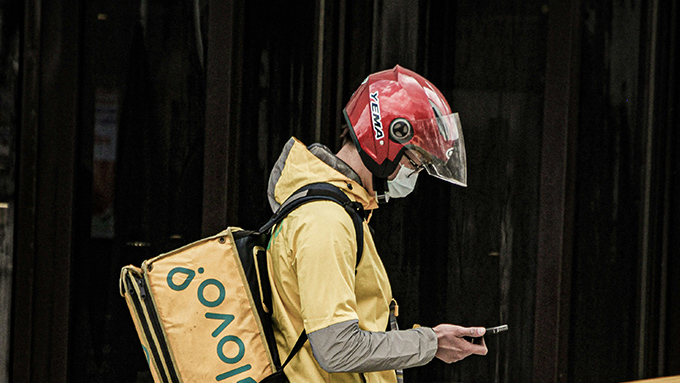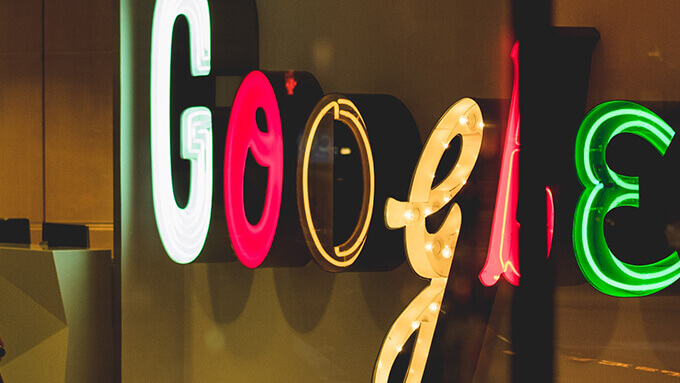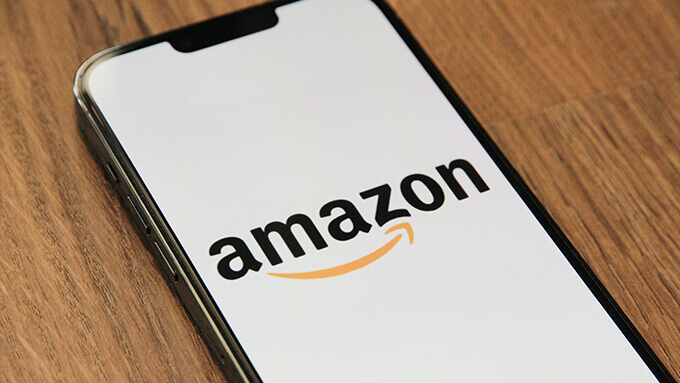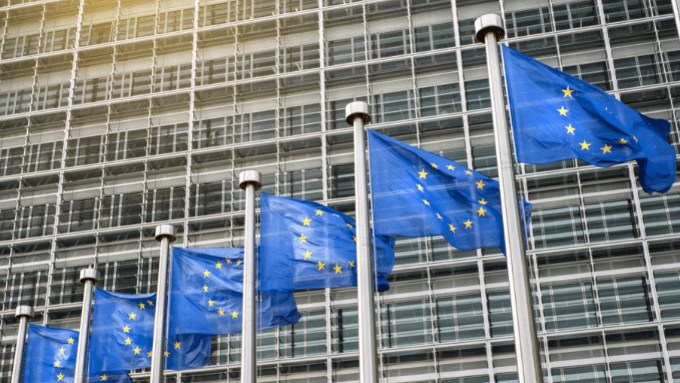The French Competition Authority’s Decision on Meta’s Commitments
Introduction
The French Competition Authority (Autorité de la Concurrence), within the scope of the competition law proceeding initiated upon the complaint of Criteo SA (“Criteo”), accepted the commitments proposed by Meta Platforms Inc., Meta Platforms Ireland Ltd., and Facebook France (together “Meta”) in order to address the competitive concerns in the French market regarding the online advertising sector.[1] The decision is noteworthy as it demonstrates Meta’s strong position in the social media and advertising services market. It is also significant as the decision constitutes the first case where a worldwide competition authority has accepted commitments proposed by Meta.
Information on the Undertakings
The complainant Criteo is a French company operating in the field of online advertising. By means of the technologies it has developed, it provides advertising mediation services to its customers in order to improve the placement of their ads on various platforms such as Facebook and Instagram, through the retargeting method.
Meta, on the other hand, offers a variety of products and services to internet users, advertisers and developers. Meta provides advertisers with its own ad inventory (Facebook, Instagram and Messenger). Additionally, it provides publishers with the Meta Audience Network advertising network service.
Recap of the Process
Since 2016, Meta has offered certain application programming interfaces (“APIs”)[2] to various intermediary undertakings, including Criteo. Criteo uses these interfaces to improve bidding and campaign performance tracking. In 2018, Meta ceased to provide such services to undertakings, including Criteo.
In addition, Criteo was prevented from being a “Facebook Business Partner” (now “Meta Business Partner”). This partnership allowed undertakings to benefit from the system in order to improve their service quality, gain easier access to interfaces and increase their reputations in the eyes of their customers. The partnership is perceived by advertisers as a guarantee of quality in terms of campaign management, technical expertise and know-how.
Based on all these actions, Criteo filed a complaint with the French Competition Authority. The complaint alleged that Meta abused its dominant position, and that Criteo was unable to fully use its own technologies to conduct its business due to Meta’s practices.
Competitive Concerns
As a result of its assessment, the French Competition Authority concluded that Meta’s various applications raised competitive concerns in the “non-search-related online advertising” market in France. Since the share of Meta in this market was 49% in 2018 and 50% in 2019, Meta is considered to be in a dominant position.
As for the competitive concerns, the Authority first evaluated Criteo’s removal as a Facebook Business Partner in 2018. Criteo’s removal from the program in question was interpreted as a failure to comply with criteria such as objectivity, transparency, predictability and consistency in terms of access.
Another competitive concern was that Meta sales teams had conducted practices against Criteo since the end of 2017. The Authority held that these practices had prevented Criteo from re-entering the Facebook Business Partner program.
Finally, in 2018, Meta blocked Criteo’s access to an API called “User-Level Bidding”, which was made available to a limited number of companies for trial purposes. The API allowed Criteo to use its own bidding and product recommendation technologies to optimize retargeting offers within the Meta advertising ecosystem. In this context, the blocking of Criteo raised concerns about the transparency, impartiality and non-discriminatory nature of the terms of access to Meta APIs.
In light of the considerations stated above, the French Competition Authority determined that the competition between online advertising providers who want to place their ads in Meta’s inventory was distorted. Similarly, due to Meta’s strong position, there was a question of whether a foreclosure effect exists for intermediary undertakings such as Criteo, which compete with the retargeting services developed by Meta.
Meta’s Commitments
In order to eliminate these concerns, Meta proposed commitments. After evaluating these commitments, the French Competition Authority accepted them, concluding that they could be effective in addressing competitive concerns. The commitments include all advertising service providers participated in at least one advertising campaign targeting Meta’s service users in France during a period of one hundred and eighty days. The commitments proposed by Meta are set forth below:
Conditions of Access to the Partnership Program
Firstly, Meta committed to provide access to the Meta Business Partner program to companies operating in the field of advertising services (“AdTech”).[3] Meta considered that such access will be subject to various quantitative criteria, such as the amount spent on advertising campaigns. In addition, Meta committed to automatically re-include undertakings that were previously included in the partnership program.
Training of Sales Teams
Secondly, Meta committed to provide compliance training to its sales teams regarding their communications made with their advertising clients. Employees are expected to receive training every year and to answer all questions correctly in the exam they will be subjected to at the end of the training. The French Competition Authority determined that the implementation of this commitment for a period of five years would be sufficient to eliminate the competitive concerns.
The Provision of a New Interface for Advertising Service Providers
Meta committed to develop a new API for advertising service providers. Available for free, the API enables personalized product recommendations to be offered on social media channels managed by Meta. The French Competition Authority envisaged that the relevant commitment will continue for a period of three years and decided that this commitment could eliminate competitive concerns as the terms of access to the API are sufficiently objective, transparent and fair. In addition, it stated that, thanks to this commitment, advertising service providers will be able to conduct their business using the methods they have chosen and to develop their customers’ advertising campaigns.
Monitoring of the Commitments
Finally, the appointment of a third party is envisaged by the French Competition Authority to monitor the commitments proposed by Meta. The person in question is to be independent of Meta, fulfill the legal requirements, and have certain qualifications in statistics and information technologies. If a breach of commitments occurs, this person should share their observations with Meta and alert Meta if necessary. In addition, the trustee shall notify the French Competition Authority in cases where it considers that Meta has breached its commitments due to the violation of principles such as objectivity and proportionality.
Conclusion
As a result of the French Competition Authority’s decision, the competitive concerns that have emerged in the online advertising sector in France due to various practices of Meta, which is considered to be in a dominant position, should be eliminated, as Meta’s commitments have been rendered binding.
- The French Competition Authority’s decision, No. n° 22-D-12, 16.06.2022.
- API is a software interface which allows two or more computer programs to communicate with each other.
- AdTech (Advertising Techology) refers to a specialized advertising technology. Specifically, it refers to the tools and software that advertisers use to deliver and measure digital advertising campaigns as well as reach audiences.
All rights of this article are reserved. This article may not be used, reproduced, copied, published, distributed, or otherwise disseminated without quotation or Erdem & Erdem Law Firm's written consent. Any content created without citing the resource or Erdem & Erdem Law Firm’s written consent is regularly tracked, and legal action will be taken in case of violation.
Other Contents

The U.S. District Court for the District of Columbia (“Court”) issued its memorandum opinion (Memorandum Opinion) on November 18, 2025, in the antitrust case (“Case”) between the Federal Trade Commission (“FTC”) and Meta Platforms Inc. (“Meta”). The FTC alleges that Meta monopolized the market…

No-poach agreements, which have become one of the most prominent concepts in global competition law in recent years, are defined in the Glossary of Competition Terms as “agreements, whether direct or indirect, whereby one undertaking agrees not to make job offers to, or hire, the employees of another...

The Competition Board (“Board”) has broad powers to request information from undertakings. The legal basis for this authority is provided by Article 14 of Law No. 4054 on the Protection of Competition (“Law No. 4054”). Under this provision, the Board may request any information it deems necessary from public...

Competition authorities around the world have increasingly focused on labor market infringements under competition law, issuing new regulations and guidance recently. Notable examples include the U.S. Department of Justice and Federal Trade Commission’s joint guidance, the Japanese Fair Trade Commission’s...

Chapter 8 of the General Data Protection Regulation (“GDPR”) sets out the legal remedies available to data subjects in the event of a breach of their rights under the GDPR. Accordingly, each data subject has a right to lodge a complaint with the supervisory authority of the Member State in which they reside, work...

Mergers and acquisitions play a critical role in shaping the competitive structure of the market. Although such transactions can lead to positive outcomes such as the provision of products and services at lower prices, the development of new products and technologies, and improvements in quality, they may also...

Technology and the opportunities it brings undoubtedly play a key role in strengthening the competitiveness of market players. In this context, pricing algorithms that enable undertakings to monitor publicly available prices and optimize their own pricing strategies have become widely used, especially by digital platforms...

The Regulation on Fines to Apply in Cases of Agreements, Concerted Practices and Decisions Restricting Competition, and Abuse of Dominant Position (“Former Regulation on Fines”), which entered into force upon its publication in the Official Gazette dated February 15, 2009 and numbered 27142, was...

In the past years, the Turkish Competition Board (“Board”) has closely monitored the activities of undertakings operating in the retail sector. As a result of the Board’s record of administrative fines, horizontal type of violations in the retail sector have been highly publicized. Vertical violations such as resale price...

In recent years, numerous automobile manufacturers have announced their goals to reduce carbon emissions, with many brands setting net-zero carbon targets spanning from production processes to the lifecycle of their vehicles. While ongoing debates persist regarding the significantly higher carbon footprint of...

Under Article 15 of Law No. 4054 on the Protection of Competition (“Law No. 4054”), the Competition Board (“Board”) may conduct on-site inspections at the undertakings’ premises when it deems necessary in fulfilling the duties assigned to it. During the on-site inspection, the Board is authorized to examine all...

Agreements and information exchanges between undertakings in labor markets have recently been examined in various preliminary investigations and investigations initiated by the Turkish Competition Authority (“Authority”). Following the investigations in which some undertakings were subject to...

The Turkish Competition Board’s (Board) decision regarding the acquisition of the international road transport business line of Ekol Lojistik AŞ (Ekol) by DFDS A/S (DFDS) has been one of the most prominent transactions on the competition law agenda recently...

The Competition Board (“Board”) has broad powers to request information from undertakings. The Board’s authority to request information arises from Article 14 of the Law No. 4054 on the Protection of Competition (“Law No. 4054”). Under the relevant provision, the Board may request any information it deems...

Doğuş Otomotiv Servis ve Ticaret A.Ş. (Doğuş) applied to the Turkish Competition Authority for an exemption for the practice of recommending basic wages to be applied to sales and after-sales service employees of its authorized dealers and distributors...

Access to Instagram was blocked ex officio by the Information and Communication Technologies Authority (ICTA) as of 2.08.2024. Under Article 8 of Law No. 5651 on the Regulation of Publications on the Internet and Combating Crimes Committed Through These Publications, ICTA can issue an ex officio access...

It is well known that agreements between employer undertakings with regards to their employees, such as wage-fixing and non-poaching agreements, along with competitively sensitive information exchanges have been under the scrutiny of competition authorities all over the world, including the Turkish Competition...

Automotive is one of the sectors in which the world’s most significant investments are made. The Competition Board (“Board”) has been closely interested in the automotive sector over the years and has conducted various examinations and studies in this field...

Competition authorities around the world continue unabated to investigate competition concerns arising from data collection and processing activities of digital platforms and impose severe sanctions as a result...





The startup ecosystem in Turkey has experienced notable growth in recent years. In the last quarter of 2023, 81 startups secured a combined investment of around 60 million dollars. While the number of investments remained consistent when comparing the third quarter periods of 2022-2023, there was a decrease...

Hub and Spoke cartel is a type of violation that is not clearly defined and regulated under Law No. 4054 on the Protection of Competition (“Law No. 4054”). Decisional practices of foreign competition authorities, particularly the UK Competition and Markets Authority’s decisions (“CMA”), are instructive concerning...

The Competition Board ("Board") made an addition to its line of decisions on resale price maintenance with its decision on Sunny Elektronik Sanayi ve Ticaret A.Ş. ("Sunny") . In its decision, the Board thoroughly examined the allegations regarding Sunny's involvement in maintaining resale prices and restricting...

It is observed that the Competition Authority (“Authority”) has recently scrutinized various industries such as fast-moving consumer goods, labor market, pharmaceuticals, and cement. When the reasoned decisions of the Competition Board (“Board”) published in October are examined, it can be seen that the...

Jules Verne says, “Everything on earth has a limited lifespan, nothing that will exist forever can be created by human hands”. Perhaps change is the only constant concept in all our lives. Despite two major world wars and countless periods of crisis, humanity has been undergoing a great change and...

At the meeting of the Fédération Internationale de Football Association (“FIFA”) held on 16 December 2022, the FIFA Council approved the FIFA Football Agents Regulations (“FFAR”). In the FFAR, various amendments have been made, such as the introduction of a maximum service fee limit that football agents are...

Resale Price Maintenance (RPM) is still considered a hardcore restriction under the recently revised Vertical Block Exemption Regulation (VBER), which means that it cannot benefit from a statutory exemption under Article 101(1) TFEU, unlike certain other types of vertical agreements. However, it has been debated...

In competition law, it is important to accurately determine the concept of undertaking, especially in terms of mergers and acquisitions. Therefore, the concept of economic entity aims to reveal the economic units covered by the undertakings. The relationship between the concept of economic entity and family ties comes...

In these days when the Competition Board (“Board”) frequently imposes administrative fines for preventing on-site inspections and both the Competition Authority (“Authority”) and undertakings take legal and technical measures regarding on-site inspections, a striking development has occurred. In its decision...

Online advertising has become an important source for businesses for promoting products and services and meeting consumers, as a result of the rapid development of information technologies and increase in the use of internet. Delivering targeted messages to consumers at the right time through the digital...

Selective distribution systems refer to a type of distribution system in which suppliers commit to selling the contracted goods or services directly or indirectly to distributors selected based on specified criteria, while the distributors commit not to sell the said goods or services to unauthorized...

Fast-moving consumer goods is undoubtedly one of the sectors that the Competition Authority has been working most intensively since the COVID 19 pandemic. Among the most important developments of this period was the Sector Inquiry initiated on Fast Moving Consumer Goods (“FMCG”) Retailing...

In the decision of the Constitutional Court ("Constitutional Court" or "Court") dated 09.11.2022, numbered 2020/67 E. 2022/139 K. (the "Decision"), the annulment of certain articles of the Law Amending the Law on the Protection of Competition No. 4054 ("Law No. 7246") was requested...

In Turkish competition law, certain types of mergers and acquisitions are subject to Turkish Competition Board’s (“Board”) approval in order to gain legal validity. Pursuant to Article 7 of the Law No. 4054 on the Protection of Competition (“Law No. 4054”), the Board is competent to define mergers and acquisitions...

Recently, the Competition Board (the Board) had imposed administrative fines on banks and financial institutions for failing to respond to the request for information within the scope of a preliminary investigation.[i] The request for information that lays the groundwork for the administrative fine imposed by...

Amazon, a world-famous company, is an e-commerce company that operates the world’s largest online shopping platform. In the backstage, Amazon is a data-driven company whose retail decisions are mostly driven by automated systems, fueled by the relevant market data. That being said, Amazon has a dual...

The right to make on-site inspections is one of the Competition Board’s (“Board”) most important tools for revealing whether Law No. 4054 on the Protection of Competition (“Law No. 4054”) has been violated. The effective use of this authority is quite important in terms of obtaining fruitful results from...

“Harese” is an interesting Arabic word. There is a thorn that camels love very much in the desert. The camel eats the thorn with great greed. So much so that, its mouth bleeds as it eats, but it doesn't stop eating. The taste of the thorn is mixed with the salty taste of its own blood. This mixed taste drives the camel...

Turkey’s leading pay television service provider, Krea İçerik Hizmetleri ve Prodüksiyon A.Ş. (“Digiturk”), is frequently the subject of complaints made to the Competition Authority (“Authority”). In fact, the Competition Board (“Board”) issues a new decision about Digiturk almost every year. In these decisions...

While the scope of Competition Board’s (“Board”) power to conduct on-site inspections has increased with the introduction of Guidelines on Examination of Digital Data during On-site Inspections (“Guidelines”), nowadays the amount of monetary fines imposed on undertakings continue to...

The hub and spoke cartel, which is a relatively new type of violation in terms of Turkish competition law, is defined as the indirect exchange of information between two independent undertakings which are horizontal competitors on the supplier or retailer level, through another undertaking...

The settlement mechanism has only recently been introduced to Turkish competition law practice. It entered into force with the amendment made to the Law on the Protection of Competition (“Law”) numbered 4054 on 16.06.2020, and has been in effect for less than two years. In this relatively...

Due to their increasing share in the economy and rapid growth rate, e-marketplace platforms have come under the increasing scrutiny of the Turkish Competition Authority (“Authority”) as well as many competition authorities around the world...

Pursuant to the Amendment Communiqué Concerning the Mergers and Acquisitions Requiring the Competition Board’s Approval (“Amending Communiqué”) published in the Official Gazette dated March 4th, 2022 and numbered 31768, certain amendments have been introduced...

The Competition Board (“Board”) has recently published a reasoned decision in which it evaluated BSH Ev Aletleri Sanayi ve Ticaret A.Ş.’s (“BSH”) request for negative clearance or exemption with regard to its practice of prohibiting authorized dealers from making sales through online marketplaces...

Shahmaran, a Mesopotamian myth, is believed to take place in Tarsus. According to the myth, the shah of snakes is the immortal and omniscient "Shahmaran." Shahmaran is described as a beautiful woman living in her cave with her snakes...


During the COVID-19 pandemic, competitive concerns about the pricing behavior of chain markets, manufacturers, and wholesalers engaged in the retail trade of food and cleaning supplies led to an investigation by...

When the past decisions and the recent decisions of the Competition Board (“Board”) are examined, a significant increase can be observed in the number of decisions where the Board found hindrance or obstruction of on-site inspections. This situation shows that...

The European Commission began investigating the collusive behavior of Credit Suisse, UBS, Barclays, RBS, and HSBC in the Foreign Exchange (forex) spot trading market in 2019. With the recent press release dated 02.12.2021, the Commission announced that the case is now closed...


Digitalization, in particular, necessitates the rewriting of competition law rules. Competition law is at the center all questions regarding e-commerce and digital platforms. The aforementioned platforms, which have become prominent due to innovations in...

















































